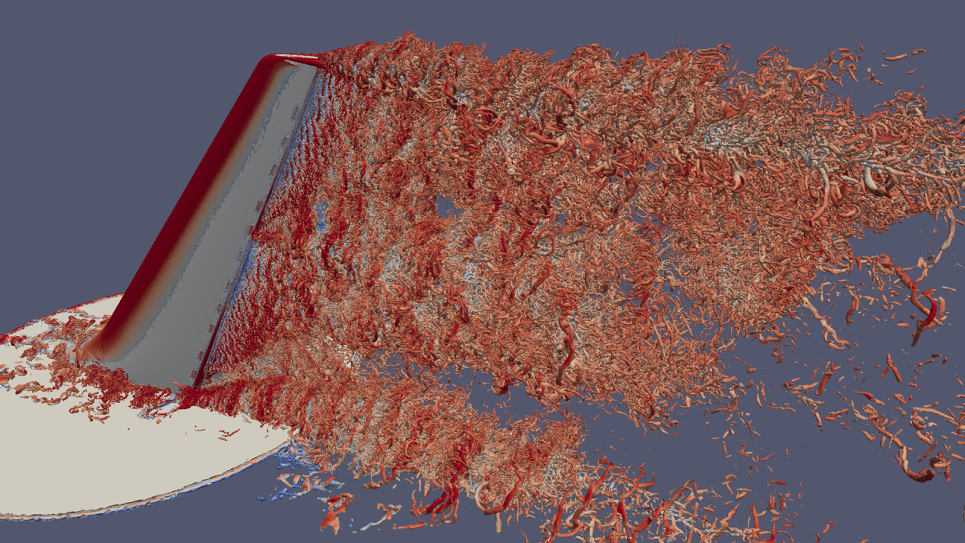Argonne's Sibendu Som (right) led a collaboration that earned an HPCwire award for using the ALCF's Mira supercomputer to advance engine designs that significantly improve fuel efficiency and emissions. (Image by Argonne National Laboratory.)
Argonne scientists win HPCwire awards for outstanding achievement
Two Argonne research teams were recognized with HPCwire Readers’ and Editors’ Choice Awards for their use of supercomputers to advance science.
Two teams of scientists from the U.S. Department of Energy’s (DOE) Argonne National Laboratory — one focused on fuel efficiency and the other on answering basic questions about the cosmos — have won recognition from HPCwire for outstanding achievement.
A representative from each picked up the Readers’ and Editors’ Choice Awards at HPCwire’s annual Supercomputing convention in November.
Considered among the most prestigious recognition given by the HPC community, they are the only such prizes that open voting to a worldwide audience of end users, according to HPCwire.
Argonne’s Multi-physics Computational Research team was recognized for its work in using high-fidelity simulations to evaluate the efficiency of thousands of computer-simulated engines: The team used Mira, an IBM Blue Gene/Q supercomputer housed at the Argonne Leadership Computing Facility (ALCF), to analyze the models in just days in an effort to improve fuel efficiency and emissions. The ALCF is a DOE Office of Science User Facility.
A portion of the team’s work was conducted at the Aramco Research Center-Detroit and Convergent Science Inc., a computational fluid dynamics company based in Madison, WI. Aramco funded the simulation campaign and also helped with the data processing and analysis while Convergent provided licenses and technical support for the effort.
Team leader Sibendu Som said he was delighted the team won the recognition.
“This is truly incredible,” he said. “It’s wonderful to see our efforts recognized in this way. We are excited about what our project might yield, and we are thrilled to see others so invested in our work.”
Argonne’s Hardware/Hybrid Accelerated Cosmology Code (HACC) team, made up of scientists from two directorates — Computing, Environment and Life Sciences and Physical Sciences and Engineering — was recognized for its role in carrying out three extreme-scale cosmology simulations on the Summit supercomputer at the Oak Ridge Leadership Computing Facility, a DOE Office of Science User Facility.
The team is investigating the effects of different cosmological models — including those involving massive neutrinos and dark energy — on the evolution and distribution of structures in the universe.
The experiments included a record-breaking transfer of data: nearly 3 petabytes per simulation.
Team member Katrin Heitmann, who carried out the data transfer using Globus, a non-profit service for secure and reliable research data management, called the award an exceptional honor because it comes from the HPC community.
“It’s wonderful to know they appreciate the science we can do through the outstanding resources provided by the DOE,” Heitmann said on behalf of her team.
Argonne National Laboratory seeks solutions to pressing national problems in science and technology. The nation's first national laboratory, Argonne conducts leading-edge basic and applied scientific research in virtually every scientific discipline. Argonne researchers work closely with researchers from hundreds of companies, universities, and federal, state and municipal agencies to help them solve their specific problems, advance America's scientific leadership and prepare the nation for a better future. With employees from more than 60 nations, Argonne is managed by UChicago Argonne, LLC for the U.S. Department of Energy's Office of Science.
The U.S. Department of Energy's Office of Science is the single largest supporter of basic research in the physical sciences in the United States and is working to address some of the most pressing challenges of our time. For more information, visit https://energy.gov/science


